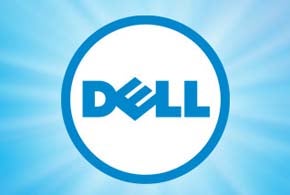A little more than a week since announcing plans to buy EMC, Dell outlined several initiatives intended to make the company and its partners competitive in a world where the way IT is deployed, managed and acquired is rapidly evolving.
At the Dell World 2015 conference, CEO Michael Dell told attendees that, at its core, the deal to acquire EMC is about both a technological and financial scale.
“Dell is set to become an enterprise solutions powerhouse,” said Dell. “I could not be more excited.”
But with that deal not expected to close until the middle of 2016 at the earliest, Dell this week focused on existing initiatives, ranging from extending its cloud alliance with Microsoft to launching products intended to position the company as a significant force in the delivery of Internet of things (IoT) applications.
Specifically, the alliance with Microsoft has led to the development of the Dell Hybrid Cloud System for Microsoft, which combines a local instance of Microsoft Azure private cloud software with Dell Cloud Manager software in a way that can be tightly integrated with the Microsoft Azure public cloud. As the second such offering from the two companies, this latest offering is aimed at midmarket organizations and can be acquired using a more flexible Dell Scale Ready Payment Solutions program through which organizations can make incremental payments as they go.
Separately, Dell also extended its relationship with Nutanix, a converged infrastructure company, via the introduction of the the Dell XC6320, an appliance based on four compute nodes capable of providing access to up to 44TB of all flash storage in a 2U form factor.
Elsewhere, Dell also extended its line of IoT gateways. Based on Intel Atom processors, the Dell Edge Gateway 5000 is the first gateway Dell has built for IoT environments from the ground up. Its price starts at $1,199.
Dell is clearly trying to expand the overall size of the IoT gateway market by turning these gateways into a commodity that will be deployed millions of times over.
Finally, Dell also launched a series of updates to its security portfolio, including the preview of a new advanced persistent threat (APT) protection service that will be delivered via Dell SonicWALL firewalls, and revealed the first systems it will offer via a Dell Datacenter Scalable Solutions business unit that is aimed at selling white-box technologies to large Web-scale companies.
As significant as the merger with EMC is from an IT infrastructure perspective, the most significant aspect of the merger may be the level of financing that Dell will be able to bring to the table once the two companies are combined. In fact, Dell this week revealed that partners that take advantage of Dell Financial Services are growing at rates that are as much as four times greater than partners that don’t.
Just as important for the future of Dell will be the amount of customer data that Dell will be able to access post-merger via new-generation analytics services the company is in the early stages of developing.

